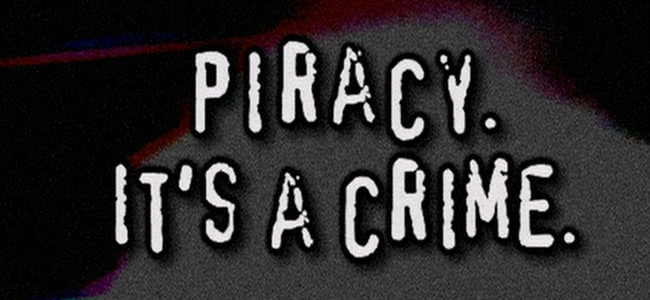It might be a bit early to call it mutiny on the music piracy bounty yet, but new figures suggest that illegal downloads have taken a significant dip in the last year.
The number of pirated music tracks has fallen by a third in the UK according to a new study, which also indicates that pirating content is considered a “minor activity.”
According to a survey by UK government regulator Ofcom, the volume of illegally downloaded songs dropped to 199 million in March this year, a drop from high of 301 million from March in 2012, as The Guardian reports. Additionally those who were still breaching copyright and pirating surveyed in the report noted they’d be encouraged to stem or stop their activities by cheaper legal alternatives if what they were pirating was available legally.
The significant dip can probably chalked up to the rise of more convenient and cheaper legal means rising in the market in recent years, especially the growing popularity and availability of streaming services like Spotify, Pandora, Deezer et al. Also, specifically in the UK, the niche but significant role is the vinyl resurgence may have contributed, with independent record stores getting their groove back, experiencing a 44% boost in sales in the first six months of 2013 compared to the same period last year; helped in large part by the success of this year’s Record Store Day. It is a ‘hardcore’ base of just 2% of people pirating music online are actually responsible for nearly three quarters of all internet copyright infringement.
Despite falling by a third, the rate of illegal downloads is still high, with the Ofcom report showing one in six UK internet users still admitting to illegally streaming or downloading files over the last year, with 9% indicating they had illegally downloaded music since the survey concluded, between March and May 2013.
Another interesting part of the the Ofcom report, based on research done by Kantar Media, was in describing internet piracy as a “minority activity,” with just a small number of users accounting for the majority of illegal activity. A revealing statistic notes it is a ‘hardcore’ base of just 2% of people pirating music online in the UK are actually responsible for nearly three quarters of all internet copyright infringement – music, movies, the works.
The new report is an improvement on Ofcom’s previous findings from the first quarter of 2013, with a May report showing that digital piracy had risen in the three months leading to the end of January 2013 (pirates getting busy during the Christmas break?), compared with the previous quarter, rising from 16% to 18% in the three month period.
Love Music?
Get your daily dose of metal, rock, indie, pop, and everything else in between.
The new figures come after a year in which the global music industry saw its first growth in revenue – of about 0.3% – since 1999 (the birth of Napster) in a report from the IFPI in which chief executive Frances Moore declared that the music industry was “well on the road to recovery.”
That being said, reports from last year indicated that Australia was still one of the worst illegal downloaders per capita in the world, with additional reports from ARIA estimating that “between 30 and 40 per cent” of internet users were still accessing “unauthorised websites” over legitimate music sources. Interestingly, a study from APRA earlier this year found that it was rich people that were more likely to steal music, despite analysis suggesting that music is cheaper to purchase now than it’s ever been.
However, those predicting an industry apocalypse based on the rate of illegal downloads, as the record labels would you have you believe (which may not be altogether accurate anyway), many may find comfort in the fact that file-sharers are still willing to pay for music.
This is backed up by evidence that digital sales have been rising throughout the year and are set to keep climbing into the future, becoming the dominant revenue of the music industry by 2016, overtaking physical sales and generating $11.6 billion; assuming some other innovation in the vein of Napster, the iPod, or Spotify doesn’t come along and upset everything again…

































